



|
Implementation & Administration Guide 1.1 |


|
This page provides examples of metadata for a SAS publication channel. The examples show the metadata for Demo Channel 1, which is installed automatically in the demo portal. When you log on to the portal with the user name "portaldemo," this channel appears in the Channels window.
To view the demo channel's metadata, open the IT Administrator interface, select the Publish Framework button, and select the Demo Channel 1 entry under Channels, as shown below.
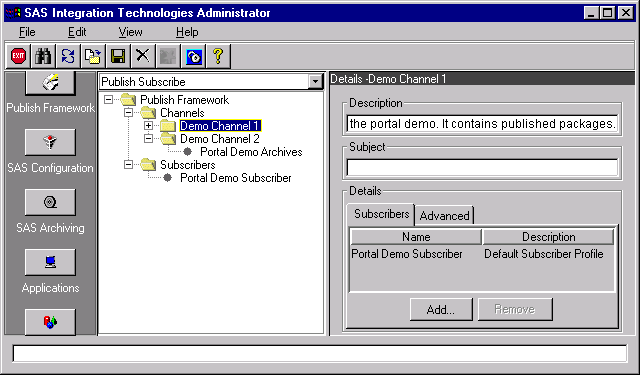
The metadata for this channel includes just a description and a subscriber, the Portal Demo user. To add more subscribers, you can select the Add button. A list of all users who are registered to the portal is displayed:
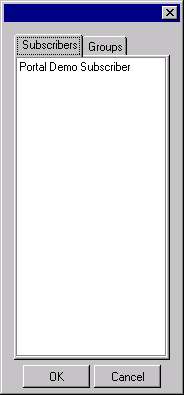
You can select additional users to subscribe to the channel, or you can click on the Group tab and subscribe an entire group of users. Alternatively, individual portal users can subscribe to channels themselves using the portal's Personalize feature, or by clicking the subscribe icon next to a channel that is listed in a portal window.
If you want to define another channel, select File, New, Channel from the menu bar and make entries in the following dialog box:
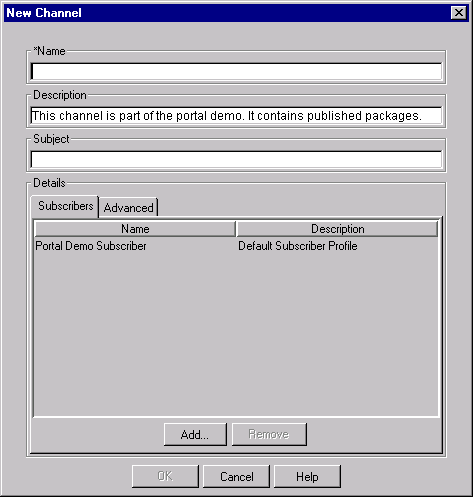
For a detailed description of each input field, select the Help button on the dialog box.
For Demo Channel 1, the portal installation process automatically creates an archive path called Portal Demo Archives using the value you provide in the the $SAS_DEMO_DIR$: parameter of the Install.properties file. You can see this metadata in the first entry in the tree under Demo Channel 1, as shown below:
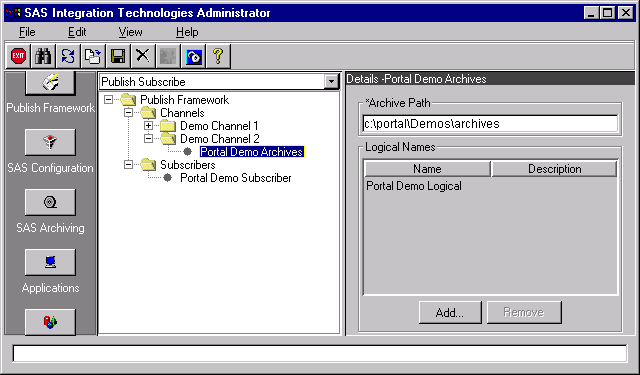
The metadata for the archive path includes the complete path relative to the root of the SAS server where published packages are to be stored.
The logical name identifies the SAS server that houses the archive path. (For information about the SAS servers defined in your enterprise directory, select the SAS Configuration button.)
Each time a package is published to a channel via the Publishing Framework, information about the published package (referred to as an archive) is automatically stored in the enterprise directory. The portal application uses this information to render channel content to portal users.
You can use the IT Administrator interface to view metadata on published packages. For example, to see metadata for packages published to Demo Channel 1, view the tree under the Portal Demo Archives path as shown below:
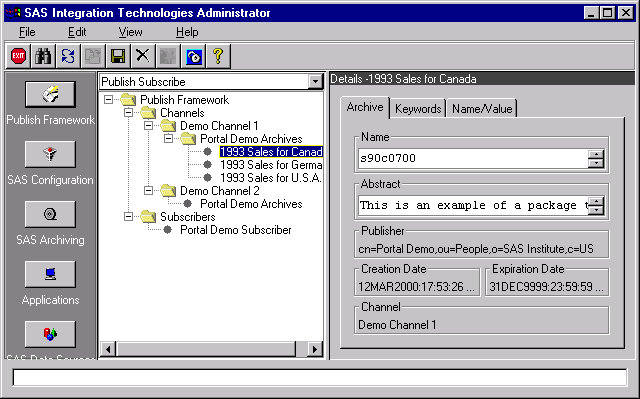

|
Implementation & Administration Guide 1.1 |


|